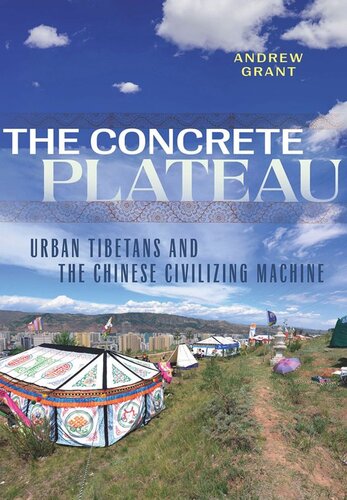

Most ebook files are in PDF format, so you can easily read them using various software such as Foxit Reader or directly on the Google Chrome browser.
Some ebook files are released by publishers in other formats such as .awz, .mobi, .epub, .fb2, etc. You may need to install specific software to read these formats on mobile/PC, such as Calibre.
Please read the tutorial at this link: https://ebookbell.com/faq
We offer FREE conversion to the popular formats you request; however, this may take some time. Therefore, right after payment, please email us, and we will try to provide the service as quickly as possible.
For some exceptional file formats or broken links (if any), please refrain from opening any disputes. Instead, email us first, and we will try to assist within a maximum of 6 hours.
EbookBell Team

4.3
88 reviewsIn The Concrete Plateau, Andrew Grant examines the ways that urbanization has extended into the Tibetan Plateau. Many people still think of Tibetans as not being urban, or that if they do live in cities, this means that they have lost something. Much of this is relates to the expectation that urbanization can only erode essential aspects of Tibetan culture. Grant pushes back against this notion through his in-depth exploration of Tibetans' experiences with urban life in the growing city of Xining, the largest city on the Tibetan Plateau.
Grant shows how Tibetans' actions to sustain their community challenge China's civilizing machine: a product of state-led urbanization that seeks to marginalize ethnic and indigenous groups. In their homes, neighborhoods, and businesses, Tibetans' assertion of cultural identity and modification of the built environment has prevented their assimilation into China's national urban project. The Concrete Plateau presents insights into the politics of urban development not only in Tibet and China, but to contexts of urban diversity all around world. Its findings are important for studies of urban development in the Global South where in-migrating ethnic and indigenous groups are negotiating top-down urban projects. Grant's book offers a profound rethinking of urbanization, rurality, culture, and the politics of place.